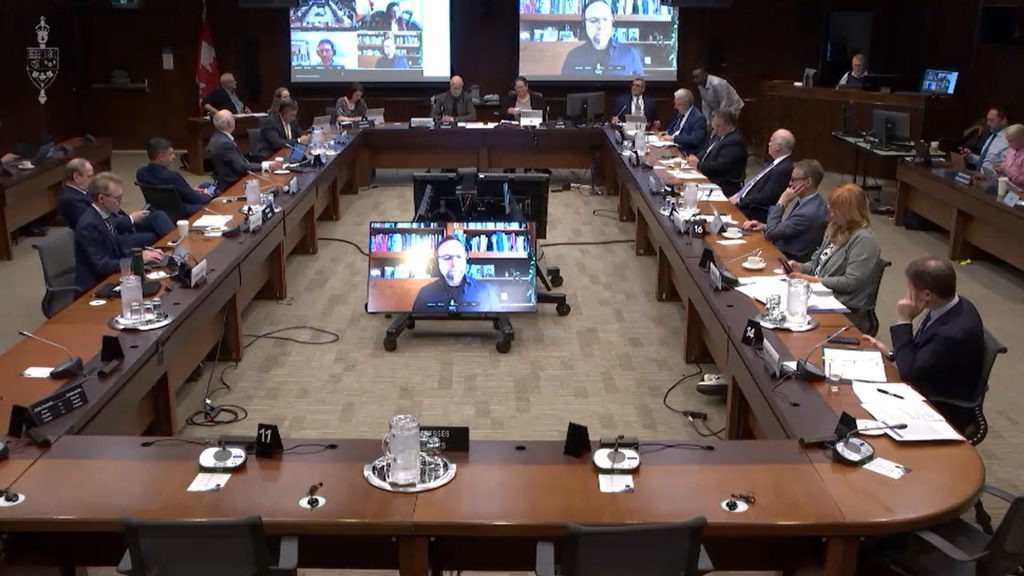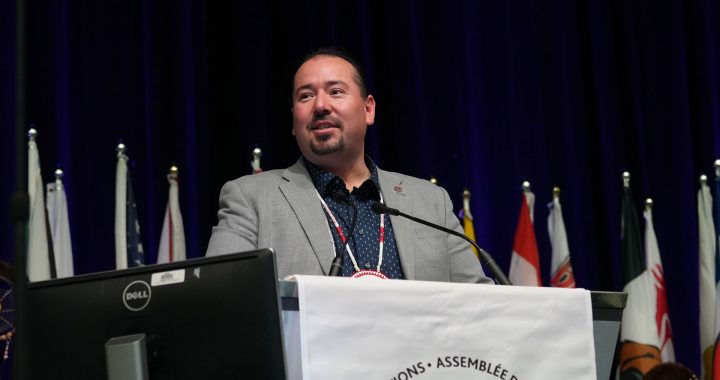
The federal fisheries committee will be hearing from DFO Minister Diane Lebouthillier on Thursday.
Three conservation groups met virtually with the federal fisheries committee to rally support for urgent amendments to the faltering Pacific Salmon Treaty.
Greg Taylor of First Fishing Consulting, Greg Knox from SkeenaWild Conservation Trust and Aaron Hill from Watershed Watch Salmon Society critiqued Alaska’s fishing operations for worsening the plight of Canadian salmon.
According to Hill, in recent years, Alaskan fisheries have taken half the adult run. In 2023, two Alaskan fishing districts along the B.C. border harvested more salmon than all fisheries in B.C., Washington, Oregon and California combined.
“We (Watershed Watch Salmon Society), partnered with SkeenaWild Conservation Trust to build a comprehensive technical report on the impacts of Alaskan fisheries on B.C. salmon,” said Hill.
“The report confirmed that the Alaskan ships’ share of the catch has grown substantially in the past decade. And that Alaska is now the biggest killer of B.C. salmon populations.”
Both groups would like to see Alaska move their fleets out of the areas on the outer coast where most of the B.C.-bound salmon are migrating.
“We’d like to see them implement basic management measures that are standard practice in B.C.,” said Hill.
“Those include, collecting and sharing genetic information on their catch to determine the rivers of origin, requiring the live release of non-target species, reporting their discard numbers, and using cameras or observers on vessels to verify their catch numbers.”
As reported by APTN in April, the Alaska Department of Fish and Game (ADFG) along with (DFO) signed an agreement to rebuild chinook salmon stocks.
The agreement places a moratorium on commercial, sport, domestic and personal fishing. The moratorium will be in place for seven years, which is the full life cycle of a chinook salmon. It will remain in effect from April 2024 to 2030.
The goal — to allow 71,000 fish to make it to their spawning grounds in Canada.
According to Hill, overfishing in B.C. has been curtailed in recent years to help grow the stocks.
“We (B.C.) have shut down our fisheries and spent money on recovery, Alaskan fleets have not scaled back.”
According to Hill, despite Canada cutting back on fishing to protect local fish numbers, Alaska keeps fishing heavily in areas where they catch a lot of fish that could go to Canada.
“Canada does not catch Alaskan fish anymore in fact it drastically reduced its fisheries to preserve its populations,” said Taylor. “Meanwhile, Alaska has maintained its fisheries and refuses to take the same kind of steps.
“No one is asking Alaska not to catch their fish, we are asking them not to operate in areas that have high interception rates.”
The groups said the severe impact of Alaskan fisheries on dwindling B.C. salmon stocks, reversing decades of conservation efforts.
Hill highlighted the stark decline in B.C.’s salmon catch over the years, despite substantial federal investments aimed at reviving the species.
He stressed the vital need for Alaskan cooperation in relocating fisheries and adopting standardized management practices akin to those in BC to mitigate the threat to vital salmon populations.
Taylor agreed with the need for Alaska to participate in repopulation efforts.
“If these were Alaskan populations, it would be unconstitutional for Alaska to maintain those fisheries. They are choosing to ignore what’s mandated in their constitution in the management and operation of their fisheries intercepting Canadian fish,” said Taylor. “In 1985 when the PST was signed, maybe it made sense, but it does not make sense in a time of climate change and when we are seeing rapid declines in those populations.
“It’s not sustainable and it has to change.”
As calls for a revised Pacific Salmon Treaty grow louder, the conservation groups hope to apply pressure on the government to ease the ongoing crisis.
“The Pacific Salmon Treaty is supposed to address these matters but it’s not and we need the Alaskans to work with Canada to fix those shortcomings,” said Hill.
“We need Canada to put more pressure both inside and outside the treaty process. Canada could also offer up compensation to shut down these fisheries, like how the United States compensated Canada for shutting down the west coast Vancouver Island troll fishery in 2008.
Lebouthillier is set to go before the committee on Thursday.










